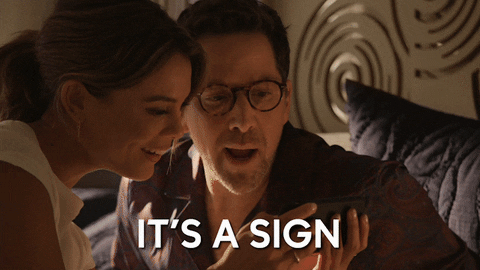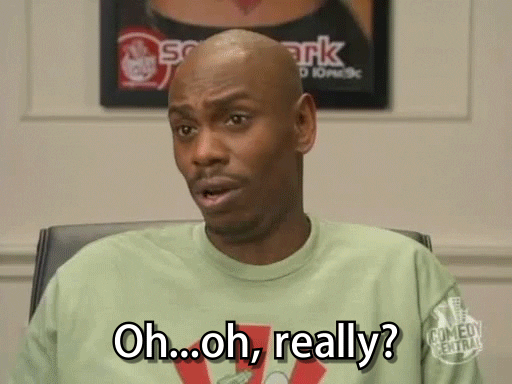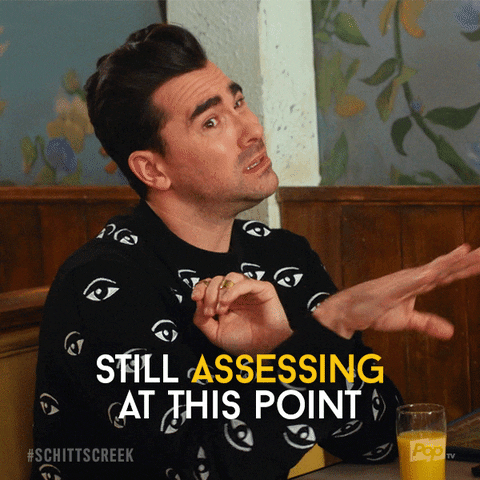9 Signs You Hate Your Job: And What You Can Do About It.
++
If you’re like us, you’ve probably experienced moments of feeling down about your work. And you’ve probably also questioned – at least once or twice – if it’s time to let go of something that formerly offered you purpose. But big decisions, like career change, should be approached thoughtfully and carefully. While it only takes a moment to quit, it’s important to remember that it may have taken you years to get where you are. So, in today’s article, we’re going to talk about nine signs that’ll help you decide whether it’s time to reinvent your current work, or strike out on a new path.
++
Stressed And Unhappy
Do you feel stagnant and crave more purposeful engagement?
Do you get a rush of anxiety every Sunday night at the thought of returning to yet another full week of work?
Is who you are at work totally out of alignment with the person you want to be?
If so, it might be time to quit your job…
… but it also might not be.
Quitting Just Isn’t That Simple
Being stressed doesn’t necessarily mean you should quit. Being stressed is a sign that you’re a human being, experiencing life’s ups and downs. Plus, your allostatic load – or cumulative stress from all areas of life, including non-work activities – is going to impact both your view on your work (and ability to handle it).
It’s important to look at other areas of your life – your relationships, your health (physical, mental, emotional, spiritual), and your environment to see all of the many factors that might be contributing to your overall view on work.
Plus, it’s normal to both love – and hate – your job. It’s unrealistic to adore every aspect of every job all of the time.
When you’re feeling overwhelmed or disappointed it’s only natural to zoom in on the negatives. To see what’s wrong with your job (rather than what’s right). To notice the bad (and not the good).
Take time to zoom out, and get a larger picture of how you’ve felt about your job over the last few months (or year) to see how you really feel.
Talking with a friend, going for a walk, or setting aside time to write down – and recognize – the highs and lows can help.
Let’s talk about some more concrete signs.

9 Warning Signs You’re Not Where You Want To Be
Warning Sign #1
You’re no longer growing.
A job that once challenged you to learn and grow, has now become so easy that it’s boring (and doesn’t give you a sense of flow). Just like physical strength gains require pushing ourselves slightly beyond our comfort zone, the same is true for our work.
If you’re no longer being called – or inspired – to learn, first ask yourself if there’s a way to reinvent your current professional environment so that you can. For example, you might see if there are some tasks you can offload, to make space for new, exciting tasks that are within your unique abilities. Taking time to brainstorm with your colleagues, friends, or employers can help shine light on new possibilities.
If you can’t find ways to make your current job better, then it might be time to consider finding a new role that will help you experience a new level of yourself.
Warning Sign #2
You’re consistently underperforming.
Most Jobs are geared towards keeping people in roles, not matching individuals up with their ideal roles. If you keep trying to get better – and you’re not seeing results – it might be time to question if you have what it takes (or if you want to put in the necessary effort). Similar to the point above, finding ways to spend more time on your unique abilities will bring you more satisfaction than constantly working to improve something you suck at (and hate).
Other times, you may have been put up against an impossible task, where the job is too big, you lack the necessary resources, or the politics are just too tricky. Here, it can be helpful to have a conversation with your boss about expectations, and what it will actually take to get the job done, to see if they’re willing to put the people – and the cash – behind it to make the project succeed (or not).
Warning Sign #3
You lack a sense of purpose.
You’re not helping the people you want to help, in the way you want to help them. And it’s hard for you to tell if you’re really helping anyone at all. The contribution you want to make during your life is being thwarted by a job that happens to take up the majority of your waking hours. If this is the case, ask yourself if there is a way to make your job more purposeful, or if your job even has to be the place where you generate meaning. For example, a high-paying job with a steady paycheck may actually give you the opportunity to give back in a way that simply wouldn’t be possible if you’re struggling to get by.
Warning Sign #4
You’ve reached your goals.
Maybe you’ve achieved what you set out to achieve. For example, an NHL player – whose entire life has been devoted to training and competing – may feel less inspired to continue once they’ve won the Stanley Cup. They’ve reached the pinnacle of their career and might be ready to move on.
Note: This is also how setting outcome goals can sabotage continued success in almost any endeavor. Whereas a process-centered approach will leave you craving more of the “process”.
Warning Sign #5
Your context has changed.
Certain positions suit certain contexts. Perhaps you had a business development position that required you to travel around the world to build relationships and create partnerships. Starting a new family may not coincide well with a life on the road and you may want to find something different (or another way to conduct your job from the comfort of your home office).
Warning Sign #6
You actively avoid your job.
Something you once loved, you procrastinate. Every chore (including the ones you normally hate) seem to trump getting to work. Resistance has many roots. Maybe you’re actually getting more positive attention for your work, and for some reason, you’re nervous about being in the spotlight. Or, perhaps, you’ve simply broken the habit of doing the things you once easily did. Sometimes, it’s about breaking down the hard thing into the smaller doable chunks (and doing the work), and other times it’s about taking a temporary (or permanent) break.
Warning Sign #7
You’re exhausted, burned out, or full of dread.
While part of adulting is learning to manage your workload, tap into self-care, and ruthlessly prioritize tasks, if you’re constantly running on empty and hating your life, it might be time to reconsider your approach. You may have to have a hard conversation with your boss (or, your over-achieving self) and set more realistic expectations, or consider moving to a new, more-enriching place of work.
Warning Sign #8
You’re moving further away from the person you want to be.
Every action you take is a vote for – or against – desired future you. Since work consumes the majority of your waking hours, it accumulates a large percentage of the vote. People are herd animals, and you’re wired to mimic the behavior of those you surround yourself with. If you notice yourself being untruthful, or acting in ways you would have previously found to be unethical or inappropriate, it might be worth checking in on your people-pleasing ways (and developing better boundaries) or finding a work environment where the values you want to uphold are shared with those you work with.
Warning Sign #9
Your workplace has become unhealthy.
If you’re working somewhere where colleagues verbally – or even physically – insult each other, or if you’re constantly working to the point of collapse, take more serious action. Have crucial conversations or find somewhere new to work. Your physical and emotional health are too important to turn a blind eye.
If you notice one – or more – of these warning signs, ask yourself if the costs of staying in the job are reasonable and acceptable to you.
If The Price Of Admission Is Just Too High…
… and the opportunity loss, or emotional toll just aren’t worth it, and you can’t see ways to make your current job better, here are some things you can try.
Thing #1
Run Experiments
See if your perception is reality. Have an honest conversation with your boss, look at your performance reviews, get in touch with your purpose, unique abilities, and values. Find out if anything can change (or not).
Thing #2
Understand the risks.
Not having a job is costly. It can take a large toll on your mental health, relationships, bank account, and even your resume. If you build a habit of quitting your job more than every few years, employers may perceive you as a serial job-hopper, negatively impacting your chances of being hired in the future.
Thing #3
Leave towards something
It’s better to quit to secure a positive role, rather than to run away from a negative situation on a whim. It will make you more confident in your decision and you’ll have higher odds of getting hired (currently being employed makes you more attractive to recruiters).
Thing #4
Quit Well
Your fantasy of telling your boss off will only give you short-term relief (and possibly ruin your professional life). It is possible to quit while maintaining – or even enhancing – your reputation. Do it thoughtfully, respectfully, and transparently.

In Summary
Every job has highs and lows. And many times, alterations can be made within your current work environment to make it better. You don’t necessarily have to quit to gain a new perspective.
Do:
- Ask yourself if the job can be done, if it’s within your unique abilities, values, and purpose, and if the costs of doing the job are reasonable.
- Run short experiments to see if you can make your current job better,
- Try to find an awesome role before you quit, and
- Exit respectfully, ensuring everyone’s dignity is intact.
Don’t:
- Stay if you’re experiencing several warning signs and can’t find ways of making it better,
- Burn bridges and ruin your most valuable asset (your reputation), and
- Make quitting a habit and blemish your resume.
We hope this helped!
Want to learn more?
Then check out Dr John Berardi’s one-of-a-kind book – winner of the 2021 Axiom Business Book of the Year – Change Maker: Turn Your Passion For Health and Fitness into a Powerful Purpose and a Wildly Successful Career.
The health and fitness industry is huge, highly competitive, and often confusing to navigate. Dr. Berardi helps you make sense of the chaos, laying out a clear roadmap to help you achieve both personal and professional success.


